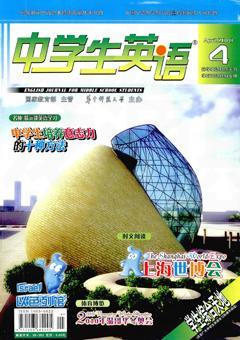七年级下册Units 1~6 热点考点讲与练
李冬梅
1. Hes from Australia. 他来自澳大利亚。
【点拨】 be from ...意为“来自……”,相当于come from;be from中的be要根据句子的主语来选用am, is, are,变疑问句时直接把be提至句首,变否定句时直接在be后面加not。例如:Where is your pen pal from? 你的笔友来自哪儿?
2. What language does she speak? 她讲什么语言?
【点拨】 就某种语言提问,要用what language。
3. I can speak English and a little French. 我会讲英语,还能讲一点法语。
【点拨】 a little是一个固定短语,意为“一点儿;少量”,含有肯定意思,一般用来修饰不可数名词;而little则含有否定意思,意为“几乎没有”。例如:I have a little milk. 我有一点牛奶。
I can speak little Japanese. 我几乎不会讲日语。
4. The pay phone is across from the library. 公用电话在图书馆的对面。
【点拨】 across from意为“在……的对面”,相当于on the other side of。例如:Is your house across from the post office? 你家在邮局的对面吗?
5. The pay phone is next to the library.公用电话紧挨着图书馆。
【点拨】 next to意为“紧靠……的旁边;贴近;接近”。
6. The library is between the restaurant and the supermarket. 图书馆位于饭店与超市之间。
【点拨】 介词between的意思是“介于……之间”,between可与and连用,表示“在……与……之间 ”。
7. —Where is the park? 公园在哪儿?—Its on the Center Street. 在中心街。
【点拨】 询问地点时,要用where。
8. There is a big supermarket. 有一个大超市。
【点拨】 There be ... 句型表示“某处有某人/物”,be用is还是用are,要与其后面的第一个词的单、复数形式为准。例如:There are 19 girls in our class. 我们班里有19名女生。
9. Isnt he cute? 难道他不可爱吗?
【点拨】 否定的一般疑问句翻译成汉语,意为“难道……不……吗?”,多用来表示提出请求或表示说话人的看法或惊异的情绪。在回答否定疑问句时,要注意应根据实际情况回答。如果答案是肯定的,就用“Yes, +肯定结构”;如果答案是否定的,就用“No, +否定结构”;但Yes通常译为“不”,No通常译为“是的”。例如:
—Cant you go with me? 难道你不能和我一起去吗?
—Yes, I can. 不,我能去。
10. ... but at night he gets up and eats leaves. ……但是在夜里它起来吃树叶。
【点拨】 leaf是单数形式,其复数形式是leaves。
11. —What does she do? 她是干什么的?
—Shes a doctor. 她是一位医生。
【点拨】 询问某人的职业时,可用“What is / are ...?”,也可用“What does / do ... do?” 或“Whats ones job?”句型来询问。回答时,一般要用表示职业的名词来回答,即:“主语+be+表语(表示职业的名词)”。例如:
—What does your father do? (= What is your father? / Whats your fathers job?) 你父亲是干什么工作的?
—He is a teacher. 他是教师。
12. I wear a white uniform. 我穿着一件白色的制服。
【点拨】 wear与put on都有“穿”的意思,但wear是强调“穿”的状态,put on强调“穿”的动作。例如:Its cold outside. Put on your coat. 外面冷,穿上你的外套。
13. ... then we have a job for you as a waiter. ……那么我们就有一份适合你做的服务员的工作。
【点拨】 as是介词,意思是“作为……”。例如:He works as a reporter in the TV station. 他在電视台当记者。
14. —What are you doing? 你在做什么?
—Im watching TV. 我在看电视。
【点拨】 现在进行时表示此时此刻正在进行的动作,由“be(am, is, are) +动词现在分词(v-ing)”构成。常与副词now连用。当句子中有了look, listen等词时,也要用现在进行时。例如:They are reading English now. 他们现在正在读英语。Listen! Whos singing? 听!谁在唱歌?
15. How is the weather in Beijing? 北京的天气怎么样?
【点拨】 询问“天气怎么样?”,可用“Whats the weather like?”,也可用“How is the weather?”。例如:Whats the weather like there?=How is the weather there? 那儿的天气怎么样?
16. Thank you for joining CCTVs Around the World show. 谢谢你参加中央电视台的《环球世界》节目。
【点拨】 Thank you/Thanks for (doing) sth.意为“因(做了)某事而感谢你”。Thank you/Thanks for…意为“因……而感谢”,介词for后面可接名词、代词或动词-ing形式。例如:Thank you for your help. 谢谢你的帮助。
17. But everyone is having a good time. 但是每个人都玩得很高兴。
【点拨】 have a good time意为“玩得高兴;过得愉快”。例如:They had a good time in the park yesterday. 他们昨天在公园里玩得很高兴。
巩固练习
()1. I got an e-mail this morning. Its ________ my best friend John.
A. inB. on C. at D. from
()2. Theres ________ milk at home. We have to buy some this afternoon.
A. a littleB. littleC. a few
()3. —Excuse me, young man. Where is the park, please?
—Its across ________ the supermarket.
A. inB. onC. fromD. at
()4. There ________ a lot of rain in this area in August every year.
A. isB. wasC.areD. were
()5. —Excuse me. ________ is the park?
—Its next to the supermarket.
A. WhatB. When C. WhereD. Which
()6. —Isnt he a pilot?
—________. He is a reporter from CCTV.
A. No, he isntB. Yes, he isC. No, he is D. Yes, he isnt
()7. —________?
—Im a policeman.
A. What do you doB. What do you want to do C. What are you doing
()8. —Nancy, dont always ________ that old jacket. It looks terrible.
—But I think its cool, Mom.
A. wear B. dressC. put onD. take off
()9. ________ a teacher, John thinks that his main duty is to help the students to become better learners.
A. As B. ByC. About
()10. Look!Janes grandmother ________ with some aged people in the park.
A. dances B. danced C. is dancingD. was dancing
()11. —We are going go to have a barbecue in Nanshan Park tomorrow.
—__________.
A. Have a good time!B. Congratulations!C. Thats true!D. Thats right!
()12. —Thank you very much __________ helping me.
—Not at all.
A. forB. ofC. to
13. 請按各小题的要求转换句型,每个空格只准填一个单词。
Most people in France have learned English. (就划线部分提问)
__________ __________ have most people in France _________?
14. 根据汉语提示完成下列句子,每空一词。
你们的教室紧挨着图书馆吗?
Is your classroom __________ __________ the library?
15. 根据句意及所给中文提示或英文解释,写出句中所缺单词。
—Would you please put this box ___________(在……之间) the desk and the wall?
—No problem.
16. 根据句意,用括号内所给单词的适当形式填空。
There are a lot of _________(leaf) on the tree when spring comes.
17. Hows the weather in Bazhong today? (同义句转换)
________ the weather ________ in Bazhong today?
Keys: 1~5 DBCAC6~10 AAAAC11. A12. A13. What language; learned14. next to15. between 16. leaves17. Whats; like

